The views expressed in our content reflect individual perspectives and do not represent the authoritative views of the Baha'i Faith.
…to interfere with matters of conscience is simply to give them greater currency and strength; the more you strive to extinguish the more will the flame be kindled, more especially in matters of faith and religion, which spread and acquire influence so soon as blood is shed, and strongly affect men’s hearts. – Abdu’l-Baha, A Traveller’s Narrative, p. 20.
My Dad loved boxing.
When I was a kid, if a boxing match was on TV, my father would watch it with rapt attention. An ex-Marine who had a short-lived military boxing career himself, Dad had the old-school mentality—he thought the sport tested the true mettle of the true man.
In fact, sometimes I thought my father got his entire moral framework from boxing. He told me: if somebody hits you, hit them back, harder. Have respect for your opponent, but have confidence you’ll beat him. The boxing ring symbolizes life, and the goal is to win. All existence is a competition, a brutal survival of the fittest. Always strive to be the champ. Dad’s definition of what it took to be a man seemed to originate in the ring, where two men stood up until only one could.
Naturally, as a boy, you take your cues about manhood from your father. You look up to your dad, and want to be like him. But for some reason, I never really wanted to hit or hurt anyone. Oh, Dad tried. He got me my first pair of boxing gloves—red leather, 14 ounces, white laces—when I was seven years old. He said he wanted to teach me to be a man.
I got in the ring with those gloves on a few times. I learned quickly that I didn’t like getting hit; but that I didn’t like hitting even more. One boy who I knocked down started crying, and I could feel his bleeding split lip and his pain and humiliation as though they were mine. If this was what it took to be a man, I thought, I wanted no part of it. After that, I told my father I didn’t want to box anymore. I stopped watching the fights with him. I knew I had disappointed him, but I couldn’t be who he wanted me to be.
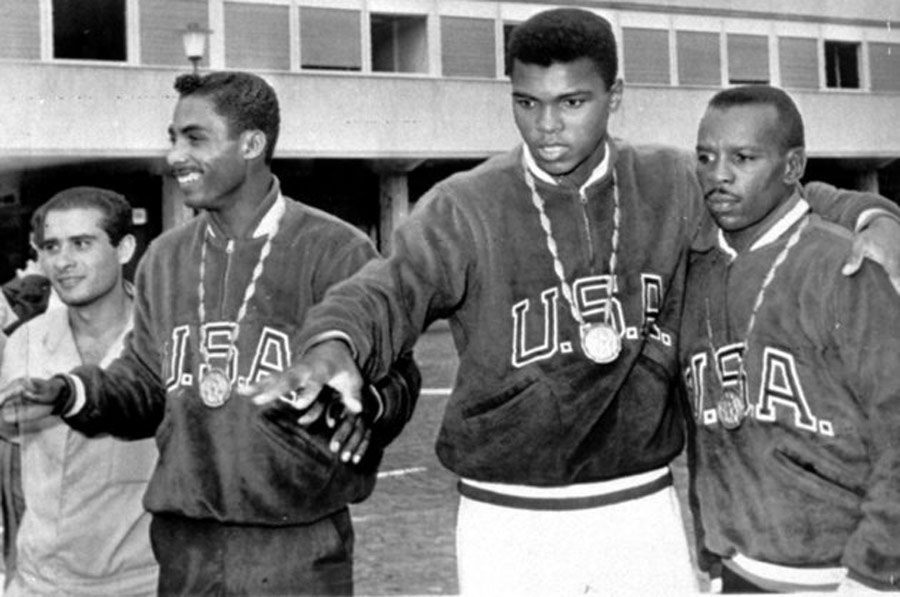
A few years later, a young fighter named Cassius Clay won a Gold Medal at the Summer Olympics in Rome, and friends told me I had to watch him box. I didn’t. Four years after that, Clay became the heavyweight champion when he defeated Sonny Liston—and then became a member of the nation of Islam and changed his name to Muhammad Ali.
When the United States Army tried to draft him to go to war in Vietnam, Ali refused, saying:
My conscience won’t let me go shoot my brother, or some darker people, or some poor hungry people in the mud for big powerful America. And shoot them for what? They never called me nigger, they never lynched me, they didn’t put no dogs on me, they didn’t rob me of my nationality, rape or kill my mother and father…. How can I shoot them poor people? Just take me to jail.
Now a teenager, and subject to the draft myself, I began to pay attention. I realized that Muhammad Ali’s strength and power had suddenly transcended the physical and become spiritual. In the ring, he had dominated. Outside the ring, he had shown the world that his conscience and his moral judgment and his religious faith would not let him fight a war he considered wrong, no matter what it cost him.
Ali’s lone, principled refusal to go to war helped inspire me, and many, many others, to register for the draft as conscientious objectors. It also inspired Martin Luther King, Jr., who had previously avoided addressing the issue of the Vietnam War for fear of alienating the United States government and its support of Dr. King’s civil rights agenda. After Ali’s conscience-driven decision, Dr. King made his famous anti-war speech at New York’s Riverside Church, helping to rally the entire country to begin opposing the war.
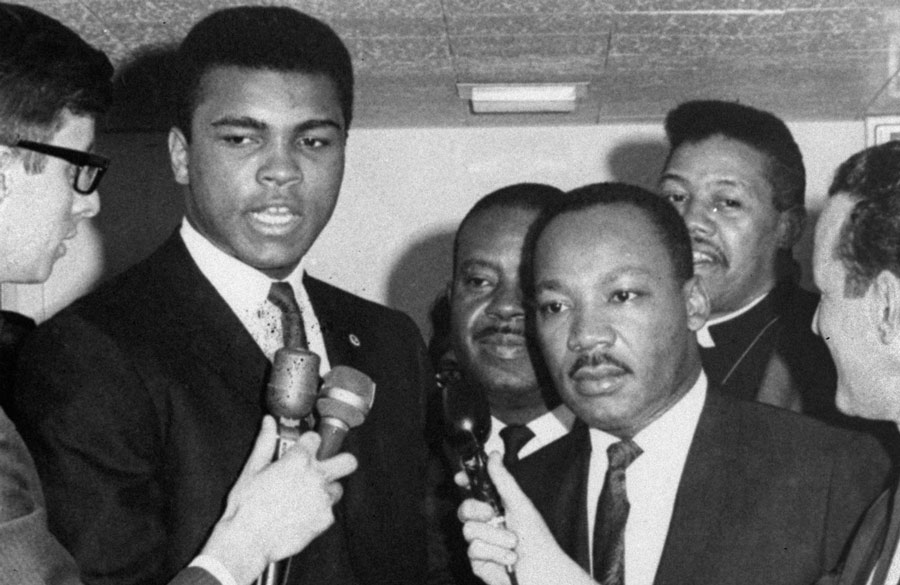
One man’s refusal to fight an unjust war led to the end of the war, and even started to change the world’s attitudes toward war itself. That probably happened because Ali had proven his physical strength in the ring, and then, in a display of spiritual strength, decided not to kill others.
Ali’s spiritual path led him to his conscience-driven decisions. He first joined the Nation of Islam sect, but converted to mainstream Sunni Islam in 1975. Later in life, he became a follower of Inayat Khan, the founder of Universal Sufism. That spiritual path also led him to a lifetime of social activism on a global scale. If you visit his hometown of Louisville, Kentucky, and go to the non-profit Muhammad Ali Center there, you’ll discover a focus on peace, social responsibility, and respect for all of humanity.
When we remember Muhammad Ali, we can best remember him, not by his prowess in the ring, but instead by his fight for justice and peace outside of it.
How grievous it is to see how man has used his God-given gift to frame instruments of war, for breaking the Commandment of God “Thou shalt not kill”, and for defying Christ’s injunction to “Love one another.”
God gave this power to man that it might be used for the advancement of civilization, for the good of humanity, to increase love and concord and peace. But man prefers to use this gift to destroy instead of to build, for injustice and oppression, for hatred and discord and devastation, for the destruction of his fellow-creatures, whom Christ has commanded that he should love as himself!
I hope that you will use your understanding to promote the unity and tranquillity of mankind, to give enlightenment and civilization to the people, to produce love in all around you, and to bring about the universal peace. – Abdu’l-Baha, Paris Talks, pp. 42-43.
You May Also Like
Comments



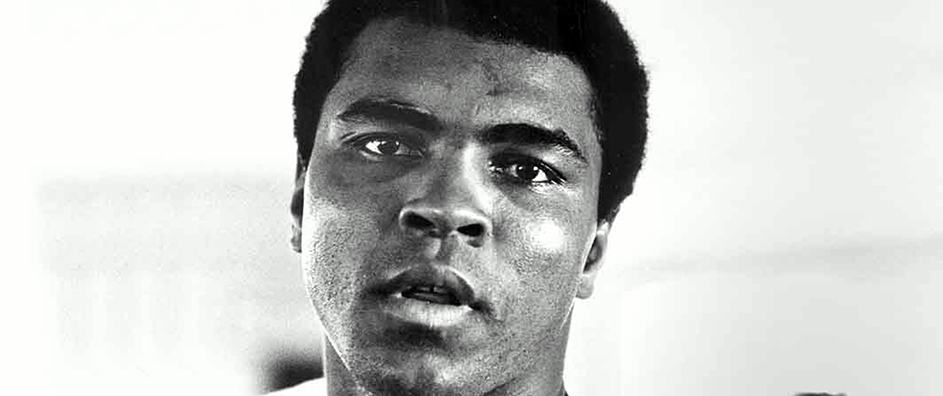


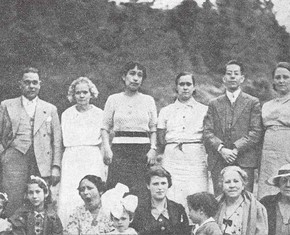
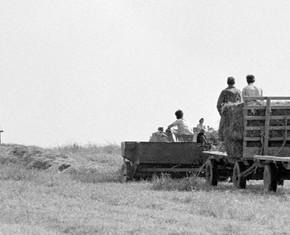









Muhammad Ali, The Soul of a Butterfly: Reflections of life's journey
As for Louise Arbour she has fulfilled God's Plan and may well be recognized as the most important person of her generation.
Just some ideas. Though you don't seem to lack for them!
This is also a peace offering to make up for my reaction to what I considered to be an unecessarily prohibitive vision of what a Baha'i is.
From what I understand none of us has more than the occasional glimmering of what the Revelation of Baha'u'llah is. Ever since I encountered the Faith there has been a general consensus of what a Baha'i is and this has been a barrier. Please let us admit that we do not know. And then we can join with others in their endeavors for the betterment of all the peoples of the world. We can make our contributions and help with the contributions of others!
Finally though I just want to thank you for your wonderful contribution to the consultation!